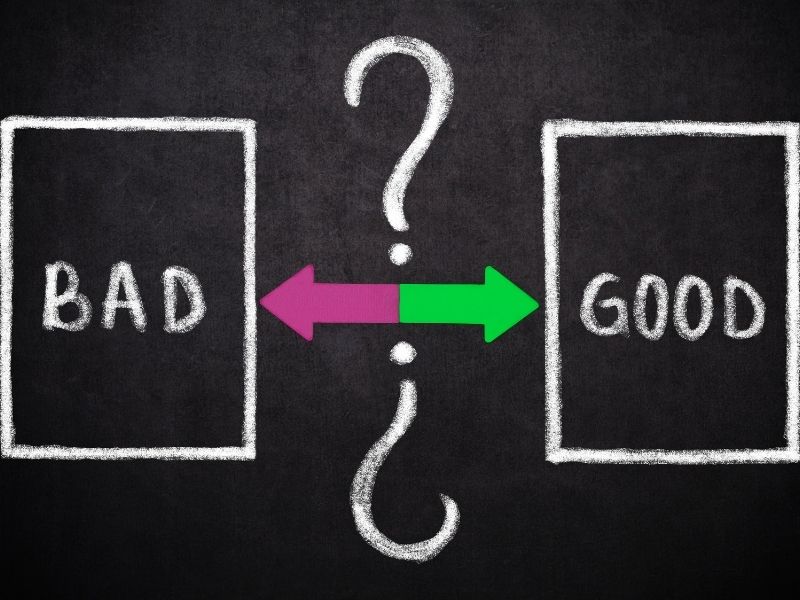I’d like you to think about the following two scenarios and choose the one that would have more impact on you?
(a) Losing $1000
or
(b) Winning $1000
Most of us would answer a) that losing $1000 would be more painful than the pleasure associated with winning the same amount. This is because bad is known to be stronger than good. In fact, researchers have found that negative information, experiences and people have far deeper impacts on us than positive ones (Baumeister et al., 2001).
Negative bias is the name for the psychological phenomenon by which humans pay more attention to and give more weight to the negative, rather than the positive. It can be insidious and an unconscious tendency. It is why any negative experiences seem to have a greater psychological impact on us compared with positive ones. Or why it takes a long time to get over a terrible first impression. Bias is generally a bad thing as it may cause us to think about certain things that may be untrue, harmful or unrealistic.
Negative bias can also have an impact on our romantic relationships. Baumeister and his colleagues (2001) have found that there needs to be five positive acts to make up for one negative act to ensure a long lasting and satisfying relationship. Otherwise the odds are that the relationship will fail.
So why do we have negative bias?
Negative emotions are our first line of defence against harm’s way. Our brains are made up of systems to make us alert to dangers so we can respond to them. It has been around since the start of evolution when our ancestors had to make quick decisions in the face of risk to survive.
How can we overcome it?
By rebalancing our focus so we look for the positive. You can do this by:
- Focusing on what went well
- Reminding yourself of your strengths
- Savouring any positive experiences.
We will never be completely rid of negative bias; we need to accept it as a normal part of human life but be mindful that it doesn’t overcome the positive.
And watch out for the emergence of negative bias in children. Researchers have found those as young as three are starting to double the number of negative words they say, whilst the number of positive words stays the same (Lagatutta & Wellman, 2002).
These days, we are more fortunate than our ancestors to have warning signals available to help us survive (e.g. traffic lights, seatbelts, alarms etc.), so we should have more time to be focused on the positive!




